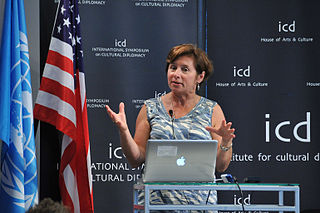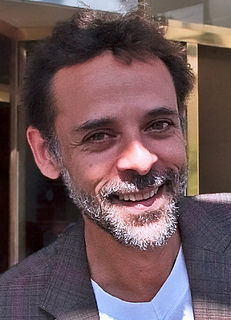A Quote by Cynthia P. Schneider
A free and democratic Arab world aligns with America's security interests.
Quote Topics
Related Quotes
[E]ncouraging the Muslim world, and particularly the Arab Muslim world, which is the heart of the global terrorist threat - to adopt democratic ways and to shine the light of liberty into its culture of medieval darkness is a pragmatic necessity for the future security of the civilized world. That is the reality behind the President's address. Only people in serious denial can be blind to this fact. Only liberals.
We have to work sincerely and responsibly to thwart any attempt to divide the Arab nation into small groups, with which foreign countries would deal separately. This would eventually be in the interests of Zionism, which stands behind such policies, formulating the relevant theories and promoting distorted information to world politicians, especially in the West, in order to make them adopt an approach which is harmful to the Arab nation and is even against the legitimate interests of their own countries.
I think the Arab world has no personality cult situation going on that they have in much of the Western world, South America included. They are a culture of words and religion, and you won't see manycsa charismatic people on Al Jazeera, except for the ones who are now learned presenters. You see Arab leaders getting on TV - which was very hard for me working out how to do the part, since Arab leaders are looking somnambulant, staring into their microphone, almost as if someone's got a hand up their back.
There is something very consistent about governance in the Arab world. Among the Arab countries today in which there is a modicum of internal stability, each is controlled by an Arafat-type figure - an anti-democratic strongman who is able to crush all challenges to his authority. Likewise, among those Arab countries that aren't ruled by a despot, the political dynamic is also consistent: In Lebanon, Iraq, and now Gaza, sectarian violence is the dominant form of political expression.





































